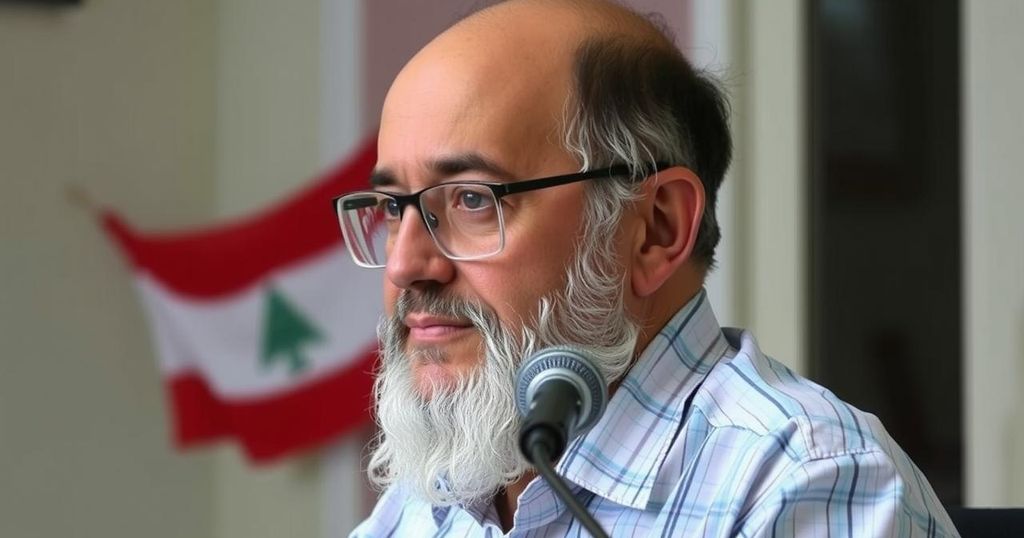Lebanon plans to deport Egyptian dissident Abdul Rahman Yusuf, who celebrated Bashar al-Assad’s ouster in Syria. Detained by authorities, he criticized the Sisi regime in his videos. Amnesty International has called for protection against his extradition due to risks of persecution. The decision reflects Lebanon’s complex interplay between political pressures and international obligations regarding human rights.
Lebanese authorities have decided to deport Egyptian activist Abdul Rahman Yusuf, who recently celebrated the downfall of Syrian President Bashar al-Assad. Yusuf, the son of the prominent cleric Yusuf al-Qaradawi, was apprehended upon returning from Syria on December 28. He has been vocal in his criticism of Egyptian President Abdel Fattah el-Sisi, and his remarks during celebrations in Syria have drawn significant attention, particularly from Saudi and Egyptian governmental circles. Reports indicate that his deportation to the United Arab Emirates is imminent, although specific timelines remain undisclosed.
Amnesty International has urged Lebanese officials to reject extradition requests from Egypt and the UAE, highlighting the potential for Yusuf to face persecution if forcibly returned. Amnesty’s Deputy Director for the Middle East and North Africa, Sara Hashash, stated that “Criticising the authorities is not a crime,” emphasizing the necessity for Lebanon to adhere to international law and human rights standards in their decision-making regarding dissenting voices. Furthermore, Hashash described the case as a pivotal benchmark for Lebanon’s commitment to freedom of expression amidst external political pressures.
The situation surrounding Abdul Rahman Yusuf is emblematic of the ongoing tensions within the Middle East regarding freedom of expression and political dissent. Following the pro-democracy uprisings of the Arab Spring, dissent has been met with increased governmental scrutiny and repression. Yusuf’s recent activities in Syria, where he openly celebrated the political developments against Assad, have posed a risk to his safety, particularly given his opposition to the regime in Egypt led by Sisi. His association with a prominent cleric further complicates his situation, as it places him at the intersection of religious and political opposition.
The imminent deportation of Abdul Rahman Yusuf from Lebanon to the United Arab Emirates raises critical questions regarding Lebanon’s commitment to human rights and the freedom of expression. As external pressures from allied governments intensify, the decision to proceed with his extradition underscores the delicate balance Lebanon must maintain while adhering to international legal standards. Yusuf’s case highlights the broader issues faced by activists in the region, where expressing dissent can lead to severe repercussions.
Original Source: www.middleeasteye.net






